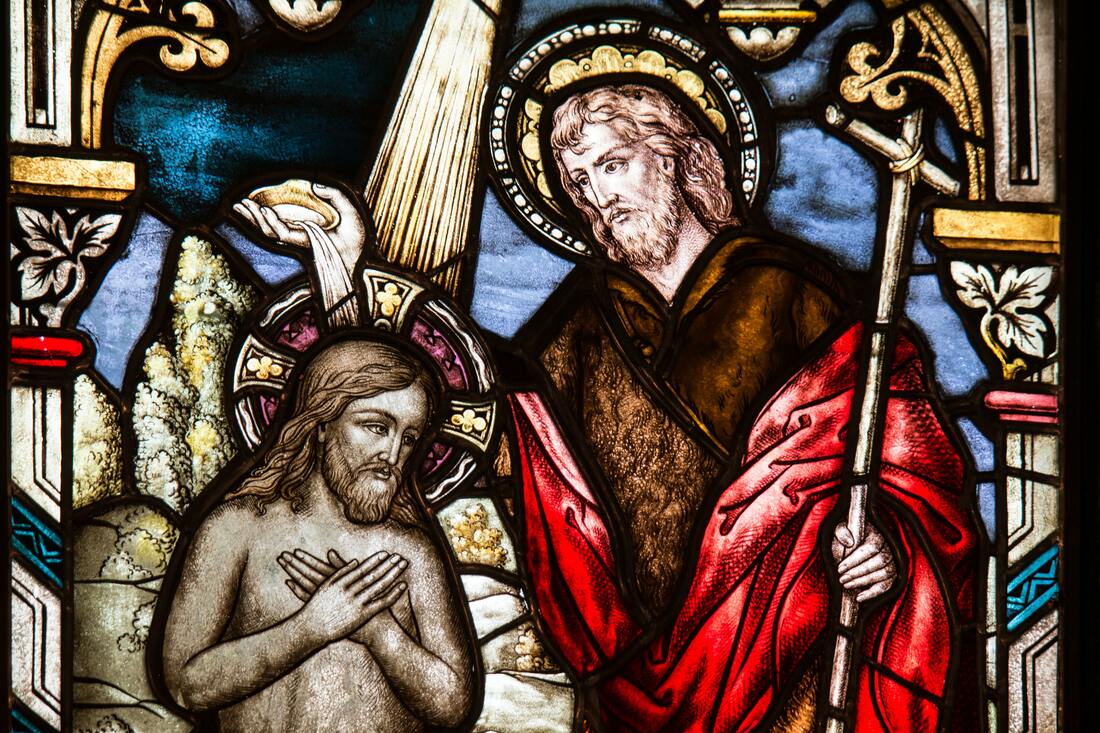|
The Imago Dei, Latin for “image of God”, is crucial for our understanding of who we are as the direct creation of God. It also provides the context from which God gives creation its job description.
Genesis 1:27-28 & 2:15 says, 27 So God created man in his own image, in the image of God he created him; male and female he created them. 28 … And God said to them, “Be fruitful and multiply and fill the earth and subdue it, and have dominion over the fish of the sea and over the birds of the heavens and over every living thing that moves on the earth.” 15 The LORD God took the man and put him in the garden of Eden to work it and keep it. If we take a closer look at these four bolded words (subdue, dominion, work and keep), we get a clearer picture of God’s original design for creation and subsequently, our work. This is foundational if we are to have a God-sized vision for our vocation, which we often find lacking as people transition from the university to the marketplace. Kabash: to subdue is to bring order out of chaos or harmony out of discord. Not to say that creation was chaotic and in conflict, but the earth was wild with raw resources and the potential of these resources was still to be realized. Tim Keller writes that work is “rearranging the raw material of God’s creation in such a way that it helps the world in general, and people in particular, thrive and flourish”. Radah: to have dominion means to rule and to reign. Because we were created in God’s image, Adam, and later Eve, are invited to actively partner with God in taking the world somewhere as responsible co-creators. Ancient rulers used their agency and power to create and shape entire civilizations. However, dominion does not imply irresponsible domination, but rather, stewardship as agents of God’s common grace. Francis Shaeffer writes, “the Christian is called upon to exhibit this dominion, but exhibit it rightly: treating the thing as having value itself, exercising dominion without being destructive.” Abad: to work means to work to serve another or cultivate, which is to draw out somethings potential. Work is then service to God and those made in his image, which is everybody. Tom Forster defines work as “any activity, pain or unpaid, whose main purpose is to cultivate blessing out of the created order”. We were created to use our God-given talents to create value in the service of others. Abad is also the same word used all over the Hebrew Bible for worship. So, work and worship aren’t two separate ideas. They are connected at the hip. All of life is worship to God. Shamar: to keep means to protect, take care of or guard. Shamar is the same word Cain uses after he kills his brother Abel and when God’s ask Cain, where is your brother. Cain replies "I don’t know, am I my brother’s keeper”. Am I my brother’s protector? So, Adam was called to protect and guard the garden of Eden. Adam wasn’t called to protect and guard the garden like an ecological preserve but to make something of it by using the raw materials to create a civilization. As we think about these words it's probably easier to grasp how God does these things for us. Now, think about what you do for your work, paid or unpaid, because work is anything that adds value to someone else. Which word might resonate best with your vocation? How might you be imaging God through your day to day? If you are involved in the building of anything and using the earth's raw materials to create something for the flourishing of others, kabash (subdue) is a good match. If you are in any position of power or leadership, from managing a fast food restaurant to a bank or POTUS, you are exercising radah (dominion). If you are creating value in any sector of society that serves others such as a waitress, barber, teacher, entrepreneur you are participating in abad (work that serves others). If you are a parent, lawyer, first-responder or forest ranger you are involved in the shamar (protection & cultivation) of creation. This is just one rubric from which to answer this question as there are many ways in which we reflect Jesus in our day to day lives and work. Our hope is that this gives you some new language from which you can attach value, dignity, and meaning to your work, which can often feel fruitless, pointless, and mundane.
3 Comments
Starting a new ministry focusing on cities is somewhat like coming to the edge of a dark forest not knowing quite where to enter the woods. However, over the past couple of months, we've found a path and feel more confident in the direction we are heading. This has been facilitated by much listening, learning, and networking.
Recently, I (Jon) had the privilege of attending a summit in Chicago focusing on the integration of faith and work. The theme was “Further Up and Further In” where roughly 400 people, representing various organizations, seminaries, and companies from around the globe, were in attendance seeking better ways to practice the ways of Jesus in the marketplace. It was a fascinating experience. I met Ed Moy, who worked for the U.S. Mint under George W. Bush and Barak Obama and heard his story of what it was like to be at the table when the economy crashed in 2008. I attended a seminar by Dave Evans, the co-founder of EA Sports, who has taught courses at Berkeley and Stanford helping students (and anyone really) use design thinking to discern vocation and calling. I learned more about the needs of emerging adults and their tendency to embrace moralistic therapeutic deism: a framework of belief where the central goal is to be happy and feel good and only turn to God in times of crisis. There were countless other conversations and meetings that, if anything, confirmed the direction we are taking in ministry. There are a lot of buzzwords out there today studying the trends of current generations (Gen Y, Z, Millennials) and what the needs are of emerging adults. The more we learn about how to best serve and minister to young professionals in the marketplace, the more we discover how the sacred/secular divide is hindering Jesus followers from living more integrated lives where the gospel influences all of life, both material and spiritual. In his seminar, Dave Evans stated, “There is no secular world, just uninformed people thinking insufficiently about reality within the kingdom of God”. Theologian Abraham Kuyper is famous for saying, “There is not a square inch in the whole domain of our human existence over which Christ, who is Sovereign over all, does not cry, Mine!” David writes in Psalm 24, "The earth is the Lord’s, and everything in it, the world, and all who live in it." One model that has been successful in correcting this sacred/secular divide in the marketplace are fellowship programs, which are 9-month learning communities focused on whole life discipleship. One of the longest-running fellows programs is the Gotham Fellowship in New York City (see video below for more info). There are a few expressions of these fellows programs in San Diego, but not nearly enough to meet the need or demand. Please continue to pray for us as we learn more about the various expressions of these programs. Our aim, God willing, is to potentially launch our own fellowship program early next summer. If the boomer generation tired of dividing their lives between secular work and sacred faith, the Millennial generation never intended to make such a division. In the past decade, the proliferation of books, materials and organizations devoted to the integration of faith and work bears witness to its growing importance.
The Call At the Lausanne Conference on World Evangelism in 2010, Mark Greene, Director of John Stott's London Institute for Contemporary Christianity outlined a significant problem stating: “The 98% of Christians are who are not in paid church work have never been envisioned or equipped for mission in 95% of their waking lives.” James Davison Hunter voices his warning about this neglect in To Change the World: The Irony, Tragedy, and Possibility of Christianity in the Late Modern World. He writes, “When the church does not send people out to these realms and when it does not provide the theologies that make sense of work and engagement in these realms, the church fails to fulfill the charge to ‘go into all the world.” As we continue to engage with young professionals, we find that many lack the confidence or are ill-equipped on how to connect their Sunday worship to their Monday mornings. In fact, the Bible speaks more about work than about formal worship. Work, in its different forms, is mentioned more than 800 times in the Bible. Seventy-five percent of the Bible’s heroes were employed in the workplace and much of the Bible’s teaching is workplace centered.
The Opportunity The workplace provides the greatest opportunity for Christians to express their God-given gifts and have a spiritual influence for God’s Kingdom. Bill Peel, from the Center for Faith & Work, argues that "the scope of a church’s influence is not its Sunday attendance, but the sum total of its congregation’s relationships—most of which are with co-workers and colleagues (over 25 per person) with 1000 Adults influenced for Christ on Sunday vs. 25,000 influenced for Christ Monday - Friday." The Potential for Cultural Influence Our society is driven by values of the workplace—power, possession, and position—rather than justice, mercy and humility. Too often, the workplace becomes the dominant influence in one's spiritual formation. Equipping others how to navigate these influences is one need, however, the greater task at hand is to exhort Jesus followers to lovingly challenge the culture of the workplace through faithful presence. These are exciting and challenging times for the American Church.
Much has been written about the American Church losing the culture war where Biblical values no longer dominate the social construct. It’s been going that way for decades, but very few researches would say that Christianity is dying. However, we have lost home field advantage. This isn’t something to fear. Good things can happen when God’s people become marginalized and less powerful. God is always in the business of purifying his followers in whole and in part and it does seem the American Church is in a stage of refinement. Marginalization should serve as a catalyst to greater dependence on God. Dependence doesn’t often translate as a positive trait, but it’s the cornerstone of the Christian life. Ireland is a good case study for what can go wrong when The Church enjoys power for too long. History has shown that when various Christian institutions have prolonged influence, it usually evolves into high control with little motivation to change and adapt with the culture. This risks waking up one day only to realize the Church has become irrelevant. When we lived in Dublin, we were able to witness how the Irish Church navigated social issue losses with referendums on same sex marriage and abortion. It’s now forcing leaders in churches (Catholic and Protestant) to take a deeper look resulting in a positive change of posture towards the majority culture. The Church in Ireland is now in an uphill climb and will be for some time. On the positive side, participating in a more marginalized gospel community can be exhilarating, stretching, and it creates life-giving solidarity as you slog through the trenches of spiritual battle with others. We don’t quite have that in America…yet. Maybe it’s coming, maybe it's not. I suspect it’s already here in varying degrees (mainly on the East and West coasts). And it’s a good thing...IF it produces gospel transformation where love of neighbor becomes our first impression versus being right (and I'm preaching to myself here). Jesus loved people into the kingdom and his harshest critiques were for the religious elite. A recent article in Christianity Today put it this way, “the church in America is now undergoing a major deconstruction of its historical identity and its organizational and institutional systems. This is requiring it to learn a new grammar for being the church. Learning this new grammar is primarily taking place on the ground in congregations that are seriously working to discern how to be led by the Spirit anew”. Ground zero for these "refining/deconstruction/reframing" movements have been taking place mostly in the cities of America and is now influencing more rural areas. Tim Keller has been leading the city movement for years. One of the fruits of this movement is redefining how we as followers of Jesus view our work. Kellers book, Every Good Endeavor, centers around greater integration of faith and work and it's role in announcing the kingdom of God. This is relevant as we learn how to serve Millennials living in the City because they are contributing to this refining process both passively and actively. Ed Stetzer writes, "As the American Christian culture becomes less and less of our primary identity, it’s imperative that we view our culture now as a mission field. We must see ourselves as people on mission. This is not our home. This is our mission field. Therefore, we all must see our vocations as mission—as kingdom work.…we need a reemphasis on gospel clarity. Being labeled Christian no longer means a ‘social Christian’, but instead is someone who's been changed by the power of the gospel. This is a vital theological shift in the way we are viewed and should view our land.” As we settle into this new frontier of cities please pray for us to trust God enough to do what he says and obedient to the change God is personally calling us into as we believe God for the flourishing of the cities in San Diego County. Leonard Sweet, in his book The Church of the Perfect Storm (2008), states that the Church is heading into a “perfect storm” of cultural forces. Sweet writes than an array of cultural forces are coming together to present the church with unprecedented challenge and unequaled opportunity. Such “category 5" realities as postmodernism, post-Christendom attacks on belief in God, and the threat of global warming have coalesced to make a “perfect storm” that will leave people uncertain of their place in the world, and all they have previously believed in. He didn’t even add in the polarizing political climate some of us live in.
Jeremiah is an example of someone who was called by God during Israel’s perfect storm in c. 626 B.C. He was tasked to give prophesy of Jerusalem's destruction that would occur by invaders from the north. This was because Israel had been unfaithful to the laws of the covenant and had forsaken God by worshiping the Baals. The people of Israel had even gone as far as building high altars to Baal in order to burn their children in fire as offerings. Israel had deviated so far from God that they had broken the covenant, causing God to withdraw his blessings. Jeremiah was guided by God to proclaim that the nation of Judah would be faced with famine, plundered and taken captive by foreigners who would exile them to a foreign land. Eugene Peterson describes it like this. Imagine there was a guy on board the Titanic with sonar equipment, trying to convince the captain and crew to believe there was an iceberg ahead. They’d never heard of sonar and thought he was nuts. That guy was Jeremiah and the Titanic was Israel. The church in Ireland is also attempting to find its moorings in the midst of their perfect storm of cultural forces that have sidelined the value of faith. Working on campus, our sonar equipment is the power of the Spirit to share the gospel and our testimony of how God has changed our lives. Our Titanic is the university context in Ireland. The iceberg is the reality that Jesus is coming back again and we want to point students to begin a relationship with Him. Jeremiah struggled to convince his people that if they didn’t change course, God would let them crash. What’s amazing to me is that He never quit pleading with them, or God, not even when the king had him thrown into a pit while invading armies starved out the last survivors in Jerusalem. Some may look at Jeremiah and say he was a failure, because he didn’t achieve the results he wanted, but he was also a great success because he was faithful to do what God asked him to do. Leonard Sweet goes on to ask, will the church sink beneath the waves, or ride the winds of the Spirit? Like the disciples when Jesus calmed the storm, the church can cower and cry out for relief. Or, when everything is spinning and whirling in the wind, the church can go out to meet the storm, embrace the gale, . . . and pass out kites. The reward is not in the harbor. The reward is in the midst of the storm. The reward is in the deep water. Please pray for us to be like Jeremiah. To be faithful to head out into the deep waters of the storm. And to pass out kites. |
Missionary MusingsArchives
February 2019
Categories |




 RSS Feed
RSS Feed
